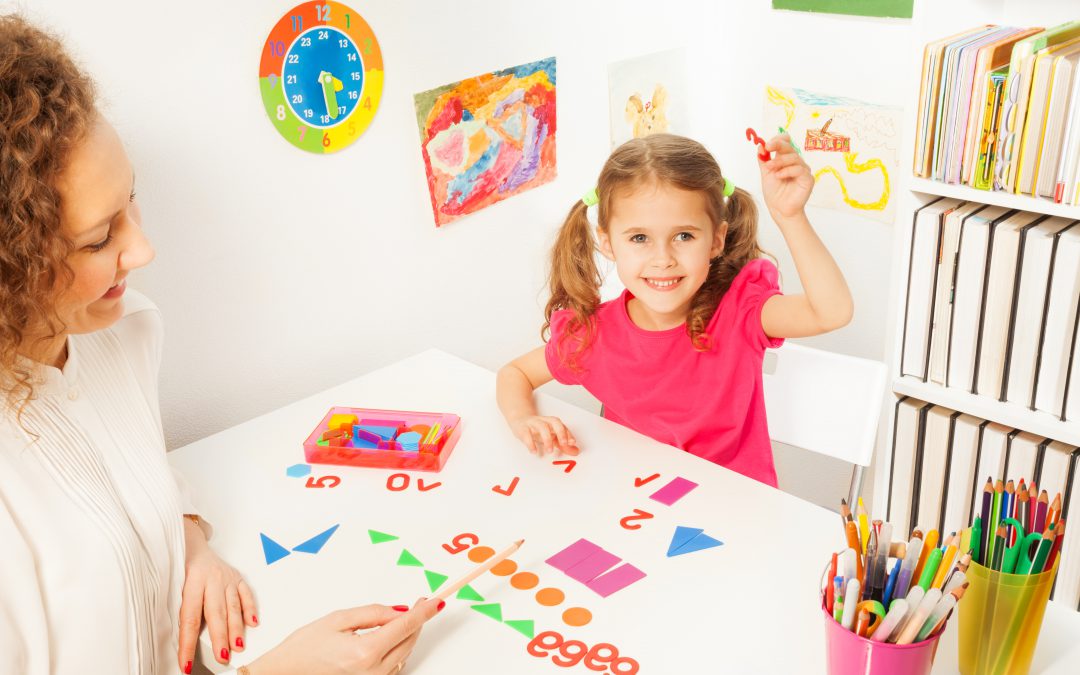For the mental processes responsible for dealing with multiple tasks, keeping focus, planning and working memory, we need to look towards the front part of our brains where the executive function skills are found, such as decision making. Children aren’t born with high executive function or self-regulation skills, it’s something they need to develop over time. Exercising these skills are important because, without them, even the best lessons and textbooks fall short as children are unable to learn effectively or apply the learnings to their life. Acting like an air traffic control system, navigating the planes for taking off and landing safely, strong executive function skills can translate to better academics and skills in life.
We all make choices in life, from the insignificant, such as; what we’re going to eat this evening to the more life-changing ones such as our careers, education choices and parenting decisions. It’s no different for children who, at very young ages, are starting to try to make decisions for themselves like; what toy to play with or who they are going to interact with. By training logic and reasoning skills in children we can teach them to make more mindful decisions, allow them to better assess the right choices and give a deeper understanding on the consequences of their actions, making them more independent.
Young children often have a very narrow-minded view due to their limited experiences which not only causes issues behaviourally when they don’t get their own way but socially and academically. Developing decision-making skills means that they can start to plan ahead, see other viewpoints and can focus on the long-term impact of their decisions. In life, this could involve the value of pocket money, what to save up for and how to spend it and in school, decision-making skills help with social and moral situations and making active choices about their lives and future careers.
As part of executive functions, planning and problem solving also play a role towards making decisions with the three skills intertwined in their processes. In many cases, a decision is based on a problem that needs fixing first, from the trivial “should I ask for a snack” to the in-depth “should I be friends with this person.” Problem-solving requires you to:
- Define a problem
- Analyse it
- Create mental images
- Generate possible outcomes & solutions
- Evaluate
And within this, core decision-making skills can make this easier. Looking at decision-making long-term also requires planning, being able to see how actions and decisions that your child makes will impact them in the future is something that even adults can’t always get right so exercising these skills early is key. Planning involves:
- Setting and working towards goals
- Managing time
- Organising actions and thoughts
- Considering consequences of action
Which means that they are considering their decisions in their overall wellbeing and as their decision-making skills improve, your child is better able to make more independent choices for themselves.
There are plenty of decisions you can include your child in already, such as the type of activities they want to undertake and their food choices.
Children who are happy making decisions for themselves can also help their peers in school, for example by having the confidence to try and tackle challenging problems, taking a leadership role in classroom groups or even social situations. But, when offering your child choices, make sure it’s in circumstances where you can accept either outcome rather than trying to guide them to answers you want. It is important not to undermine them and give them a genuine choice.
Ultimately, good decision making is developed through experience and practice, allowing your child to make their own choices and learn from mistakes, so some of the ways you can encourage the development of decision making, planning, and problem-solving skills are:
#1 To create structured play with plenty of choices. For example, early years playgroups that have plenty of organic decision-making opportunities from whether your child wants to play with the group to how they navigate social interactions.
#2 Give them space. Avoid interfering or interrupting when your child is trying to make a decision, the more they do themselves, the more confidence they will have in the future that they can make decisions on their own.
#3 Create easy access in situations they can control. For example, make the bathroom accessible so that they can make the decision to go themselves, keep their bags or personal belongings at their height so they can store and retrieve things or allow them to choose from a selection at lunch.
#4 Give them plenty of resources so that they can choose different activities or to learn about the things that interest them. This could be from providing books on different topics, facilitating a mixture of arts and crafts or a choice of tactile games but always giving them the capabilities to learn and develop their own interests so they can decide what they are passionate about for themselves.
#5 Utilise technology. The benefits of the world we live in mean that parents don’t have to struggle on their own, for example, using the NeeuroFIT curriculum which aims to help create a foundation of cognitive function and build core skills, will not only help academically but in later life too. Plus, it’s an organic and engaging way to promote decision making and executive function skills.

NeeuroFIT is a programme which consists of tactile based activities as well as brain training games to measure progress. The Flower Garden game in particular combines both memory and decision making as your child has to decide which seeds are planted in each soil to accommodate all the needs of different plants. Your child will need to use logic to solve the problems as well as recall which soils need to be watered.
Gamification and brain training in this way is more fun for learning and works multiple areas at once so that you can reap the benefits from simply one hour per week. Learn more about the brain training program and Neeuro’s Memorie app on our website, and find out how it can help your children improve decision making, planning and problem-solving.
Neeuro works globally with partners such as training providers, technology system integrators and schools to benefit children. Using modern solutions for cognitive training, cognitive skills such as attention and memory are emphasized and honed. NeeuroFIT aims to improve every child's academic success via better learning outcomes.
Click on the banner below to learn more about Neeuro and what we can offer you as a partner!






Leave a Comment